
The 1816 United States presidential election was the eighth quadrennial presidential election. It was held from November 1 to December 4, 1816. In the first election following the end of the War of 1812, Democratic-Republican candidate James Monroe defeated Federalist Rufus King. The election was the last in which the Federalist Party fielded a presidential candidate.

The United States District Court for the District of New Jersey is a federal court in the Third Circuit.
The 1816–17 United States House of Representatives elections were held on various dates in various states between April 30, 1816 and August 14, 1817. Each state set its own date for its elections to the House of Representatives before the first session of the 15th United States Congress convened on December 1, 1817. The size of the House increased to 184 after Indiana and Mississippi achieved statehood.
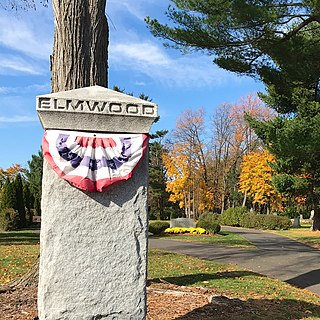
The Elmwood Cemetery is located at 425 Georges Road in North Brunswick, Middlesex County, New Jersey. It borders New Brunswick, New Jersey. The cemetery was established in 1868.
Lewis Condict was a physician, and the United States representative from New Jersey. He was the 24th President of the Medical Society of New Jersey.

Joel Barlow Sutherland was an American politician who served as the first president of the General Society of the War of 1812 from 1854 to 1861. He was a member of the Democratic Party who represented Pennsylvania in the United States House of Representatives (1827–1837).
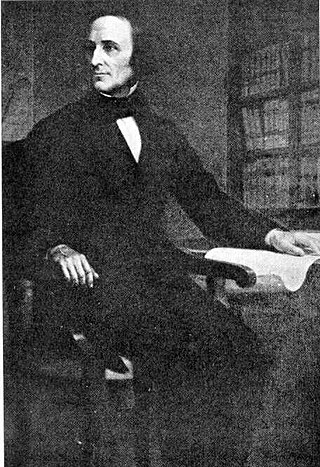
John Wurts was a member of the U.S. House of Representatives from Pennsylvania and a president of the Delaware and Hudson Canal Company.
Robert Selden Garnett was a nineteenth-century politician and lawyer from Virginia. He was the brother of James M. Garnett and the first cousin of Charles F. Mercer. He served as a member of the United States House of Representatives from 1817 to 1827.
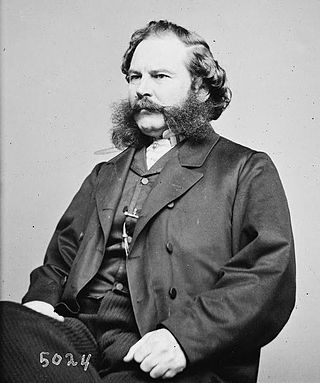
Nehemiah Perry was an American clerk, cloth manufacturer and Democratic Party politician who represented New Jersey's 5th congressional district in the United States House of Representatives from 1861 to 1865.
William R. Rockhill was an American politician who served one term as a U.S. Representative from Indiana from 1847 to 1849.
George Clifford Maxwell was a U.S. representative from New Jersey, father of John Patterson Bryan Maxwell. Maxwell's nephew George M. Robeson was United States Secretary of the Navy and also sat in Congress.
Silas Condit was a U.S. Representative from New Jersey, serving one term from 1831 to 1833.
George Holcombe was an American physician and politician who served as a United States representative from New Jersey.
James Bishop was an American Opposition Party politician, who represented New Jersey's 3rd congressional district in the United States House of Representatives from 1855 to 1857.

William Halstead was an American Whig Party politician who represented New Jersey at large in the United States House of Representatives from 1837 to 1839, and again from 1841 to 1843.
Joseph Kille was an American politician who served a single term in the United States House of Representatives, representing the at-large congressional district of New Jersey from 1839 to 1841 as a Democrat in the 26th United States Congress. Kille also served in the New Jersey General Assembly before and after his tenure in Congress.

Mahlon Dickerson was a justice of the Supreme Court of New Jersey, the seventh governor of New Jersey, United States Senator from New Jersey, the 10th United States Secretary of the Navy and a United States district judge of the United States District Court for the District of New Jersey.
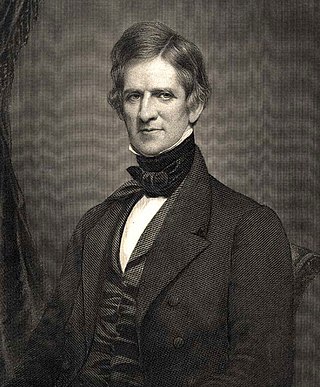
Philemon Dickerson was a United States representative from New Jersey, the 12th governor of New Jersey and judge of the United States District Court for the District of New Jersey.
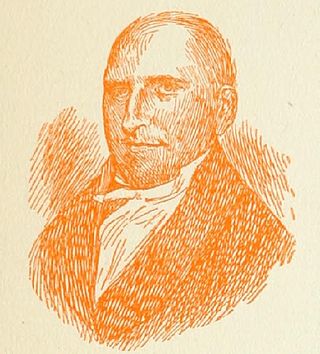
William Sanford Pennington was a United States Attorney for the District of New Jersey, an associate justice of the Supreme Court of New Jersey, the sixth governor of New Jersey and a United States district judge of the United States District Court for the District of New Jersey.

The 1816 United States presidential election in New Jersey took place between November 1 to December 4, 1816, as part of the 1816 United States presidential election. The state chose eight representatives, or electors to the Electoral College, who voted for President and Vice President.
This page is based on this
Wikipedia article Text is available under the
CC BY-SA 4.0 license; additional terms may apply.
Images, videos and audio are available under their respective licenses.











